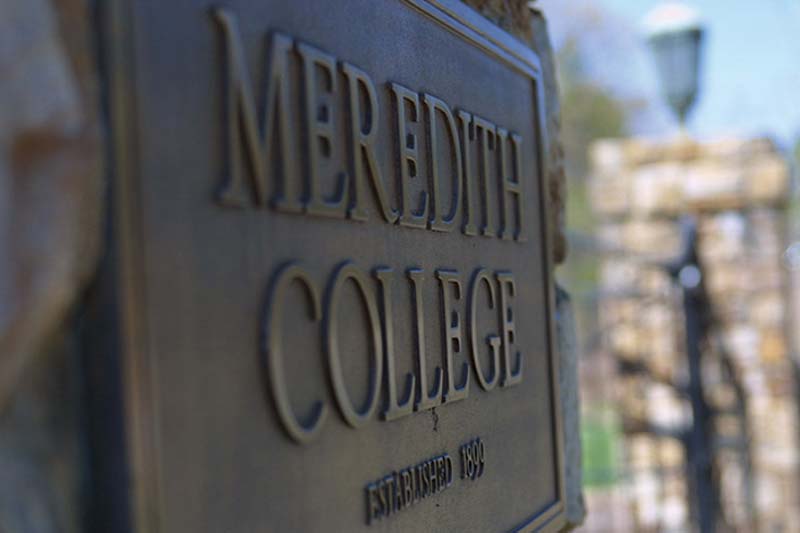Meredith Webinar Focuses on Women Voters: Past and Present
- Published

Meredith College hosted a webinar focused on Women Voters: Past and Present on October 21, 2020. The webinar was one of several special events Meredith has presented to recognize 2020 as the 100th anniversary of the ratification of the 19th Amendment.
The webinar featured guest lecturer Joshua Chanin of Texas A&M University-Commerce discussing the efforts of women to define Texas's political culture following ratification of the 19th Amendment. Chanin’s presentation provided historical context and an example of the importance of suffrage activism at the local, as well as national, level.
Meredith Associate Professor of History Angela Robbins, who helped to organize the webinar, said it is important to recognize the limitations of the 19th Amendment while commemorating its ratification.
“Mr. Chanin made clear in his presentation that it was white women in Texas and across the nation who benefited from the ratification of the 19th Amendment, because women of color were disenfranchised,” Robbins said. “In the interest of political expediency, suffragists downplayed the contributions of Black women to the suffrage movement and they even courted white supremacists in some cases. This is a painful truth that makes it more appropriate to think in terms of commemorating, rather than celebrating, the 19th Amendment, which Mr. Chanin pointed out.”
It is important to continually strive to convey a fuller, more accurate history, Robbins said.
“We must recognize that Black women’s history is American history. Widening the lens to see American history from different perspectives is valuable to our discussions about diversity and inclusion,” Robbins said. “Black women and men who were disenfranchised had no voice, no way to participate in the system, and no way to shape policies and laws that affected them. Their exclusion from the political process is an aspect of what we identify as systemic racism.”
The webinar also focused on modern women as voters and political office holders.
“The history of woman suffrage is just one aspect of a broader focus on the significance of women’s votes and the issues that women voters care about. We brought in our resident political scientists, Dr. David McLennan and Dr. Whitney Manzo, to address modern women voters,” Robbins said.
McLennan shared what has been on the minds of North Carolina’s registered voters, as reflected in the recent Meredith Poll results. Manzo reminded attendees that women are still under-represented in political offices across the nation and that North Carolina has much room for improvement in women’s political representation.
“We have a lot of work to do, as the number of women in elected offices has actually decreased in recent years,” Robbins said. “These are important considerations when we think about both how far women have come since 1920 and also how much we still need to do to improve the status of women. One thing we can all learn from this history is that we must vote and protect the right of others to vote, because that’s the best way to honor all those who fought so hard for it in the past.”
News Director
316 Johnson Hall
(919) 760-8087
Fax: (919) 760-8330
PRINCETON REVIEW
U.S. NEWS
NICHE
3800 Hillsborough Street Raleigh, NC 27607-5298 | (919) 760-8600 Fax: (919) 760-8330 | © 2024 All Rights Reserved.